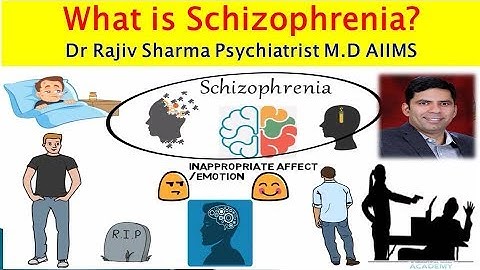For many, a late period can trigger thoughts of potential pregnancy. But a late period doesn’t necessarily mean that you’re pregnant. Everyone’s cycle is different. Healthy cycles can range in length from 21 to 35 days, and how long a cycle lasts can vary from cycle to cycle. Unless you have irregular cycles due to a medical condition, you probably have at least a rough idea of when to expect your next period. A period is considered late if it hasn’t started within seven days of when you expect it. Most pregnancy tests will be able to give you accurate results by the time your period is late. If you get a negative pregnancy test after missing a period, and your period is more than a week late, you may want to see your health care provider to figure out what’s going on. If you get a negative pregnancy test result, still haven’t gotten your period, and start to experience early pregnancy symptoms, consider taking another test. Sometimes, home pregnancy tests can give a false-negative result if it’s taken too early in the pregnancy to detect human chorionic gonadotropin (hCG) in your urine. In these cases, it can take a bit longer to know you’re pregnant after a late period. The earliest hCG detection can be done with an hCG serum test performed by a doctor as early as 8 to 10 days after ovulation. Take a quizFind out what you can do with our Health Assistant How do you know if your period is late?Whether you’re busy or just have a lot on your mind, it’s easy to forget when you should expect your period to start. But if you’re not sure when to expect your period, it’s hard to know if it’s late. A period tracking app like Flo can help. By logging your usual menstrual cycle dates, Flo can predict when you can expect your period. This information can also be very useful if you need to go to your health care provider when you miss your period. Having information about your cycle can help them understand what’s happening inside your body. Reasons for a late period (other than pregnancy)There are lots of causes for a late period that aren’t pregnancy. Some of the most common causes of late periods include: Hormonal birth controlOne of the ways that hormonal birth control prevents pregnancy is by thinning the uterine lining. This lining, or endometrium, is where an embryo would implant itself if you got pregnant. It’s also the layer that sheds from your uterus during menstruation each month. Since birth control makes this layer thinner, many people experience lighter periods while they’re taking it. In some cases, the endometrium gets so thin that menstruation doesn’t happen. Everyone is different, and as long as you’ve been taking your birth control correctly, missing a period on birth control shouldn’t be a cause for concern. If it will ease your mind, you can always take a pregnancy test if you’re not sure. StressStress affects everyone differently. When you experience chronic or extreme stress, hormones like cortisol can interfere with your menstrual cycle. However, it’s hard to determine exactly how much stress you have to experience for this to occur, since everyone reacts to stress differently. If you have an underlying health condition, stress could be an added factor that makes your cycles even more irregular. Creating healthy lifestyle habits can help keep both your mind and body in good shape.
 Weight fluctuationsBeing overweight or underweight can cause hormonal imbalances since fatty tissue plays a role in synthesizing hormones. Additionally, gaining or losing a significant amount of weight in a short amount of time can affect your hypothalamus. The hypothalamus is part of one of your body’s systems responsible for hormones. If the function of your hypothalamus is disrupted from an abrupt weight change, it can disrupt ovulation and cause a late or missed period. MedicationsCertain medications, such as certain antipsychotics, can create hormonal imbalances that can cause a late or missed period. Check with your health care provider or pharmacist about the possible side effects of any medications you’re taking. Polycystic Ovary SyndromePolycystic ovary syndrome (PCOS) is a condition that can cause irregular periods because it affects your ovulation. Other symptoms of PCOS include:
If you believe that you could have PCOS, a health care provider can give you a proper diagnosis and prescribe the treatment that you need. There are other conditions that can cause late or missed periods other than pregnancy. These conditions include:
Having a late period doesn’t always mean that you’re pregnant. In some cases, such as when you’re experiencing stress, your cycles could return to normal once you’re feeling better. However, if you’re worried about the underlying cause of your late period, it’s always helpful to take a pregnancy test and/or contact your health care provider if other symptoms arise. What if your period is late but your not pregnant?If your periods seem irregular, or you've missed a period but know you're not pregnant, it's a good idea to talk with your doctor ASAP, as there are many reasons and conditions that could be causing the issue.
What are the symptoms of delay in periods?Causes of absent menstruation
Natural causes most likely to cause amenorrhea include pregnancy, breast-feeding, and menopause. Lifestyle factors may include excessive exercise and stress. Also, having too little body fat or too much body fat may also delay or stop menstruation. Hormonal imbalances may cause amenorrhea.
Can you miss your period and not have pregnancy symptoms?But missing your period isn't always a sign of pregnancy. You can also miss your period from stress, excessive exercise, dieting, hormone imbalances and other factors that might cause irregular periods.
How much delay is normal in period?Periods can get delayed by any number of days. If next cycle starts from 28 +/- 7 days from the first date of last menstrual cycle then it is considered a normal cycle. A delay of 10 days is not normal and may need evaluation.
|

Related Posts
Advertising
LATEST NEWS
Advertising
Populer
Advertising
About

Copyright © 2024 nguoilontuoi Inc.


















